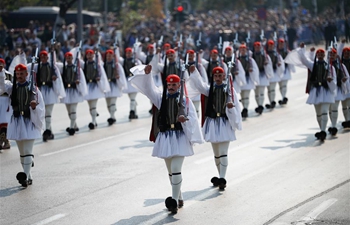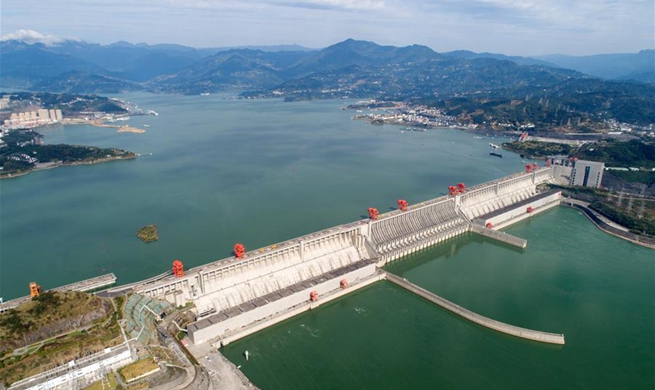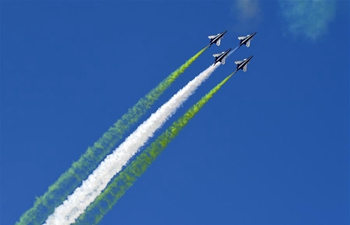CHICAGO, Oct. 28 (Xinhua) -- Drinking water not only keeps children hydrated, but also increases their ability to multitask, according to a study posted on the website of the University of Illinois (UI) on Monday.
Researchers studied 75 children in central Illinois. They compared the children's urinary hydration and cognitive performance at their normal baseline levels, after drinking only half a liter of water a day for four days, and after drinking 2.5 liters of water each day for four days.
Children with higher baseline hydration performed better on a task-switching activity designed to measure cognitive flexibility. In addition, the children collectively performed better and had faster reactions on the task-switching test after drinking more water, although they showed no difference on tests designed to measure attention and inhibition.
After drinking more water for several days, the children's hydration improved, as was expected. However, many of the children had the same or only slightly different values in urinary markers of hydration in the low-water condition as they did at their baseline. This indicates that they may be underhydrated in their everyday activities.
"Such findings suggest that childhood health behaviors, such as being properly hydrated, may benefit complex cognitive operations including working memory and cognitive flexibility. Given that these aspects of cognition underlie academic achievement, it is interesting to think about low-cost lifestyle interventions, such as increasing water intake, to benefit cognitive and brain health as well as effective functioning throughout the school day," said Northwestern University professor Charles Hillman who participated in the study.
The researchers hope to further explore the relationship between hydration and cognitive performance in children by using brain imaging in future studies to see which neural networks benefit most from water consumption. They would also like to study hydration's relationship to other mental tasks.
"The three tasks we studied do not comprehensively tap into all the different cognitive domains, there are others that may be of interest," said study leader Naiman Khan, a professor of kinesiology and community health at UI.
The study has been published in The Journal of Nutrition.

















